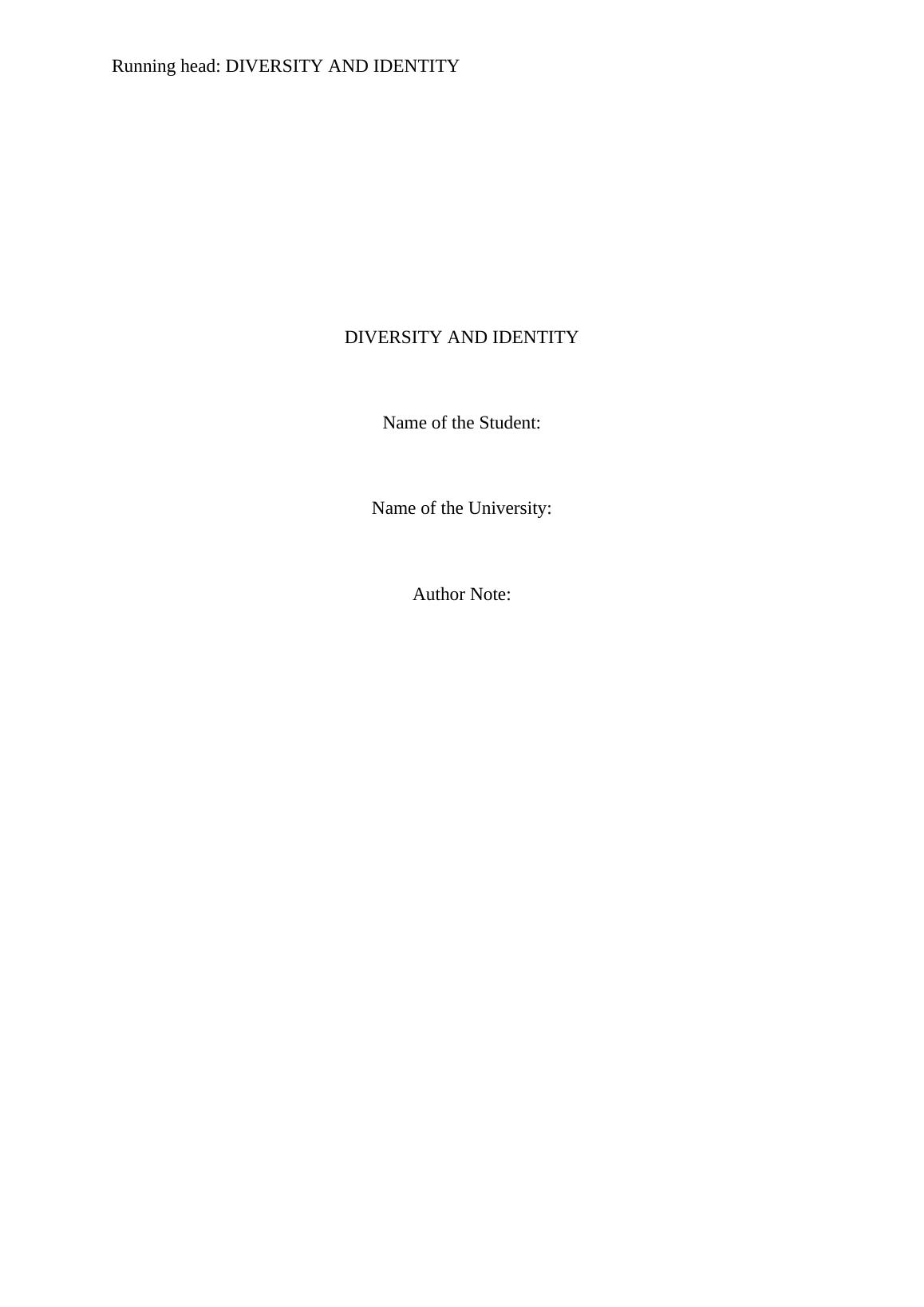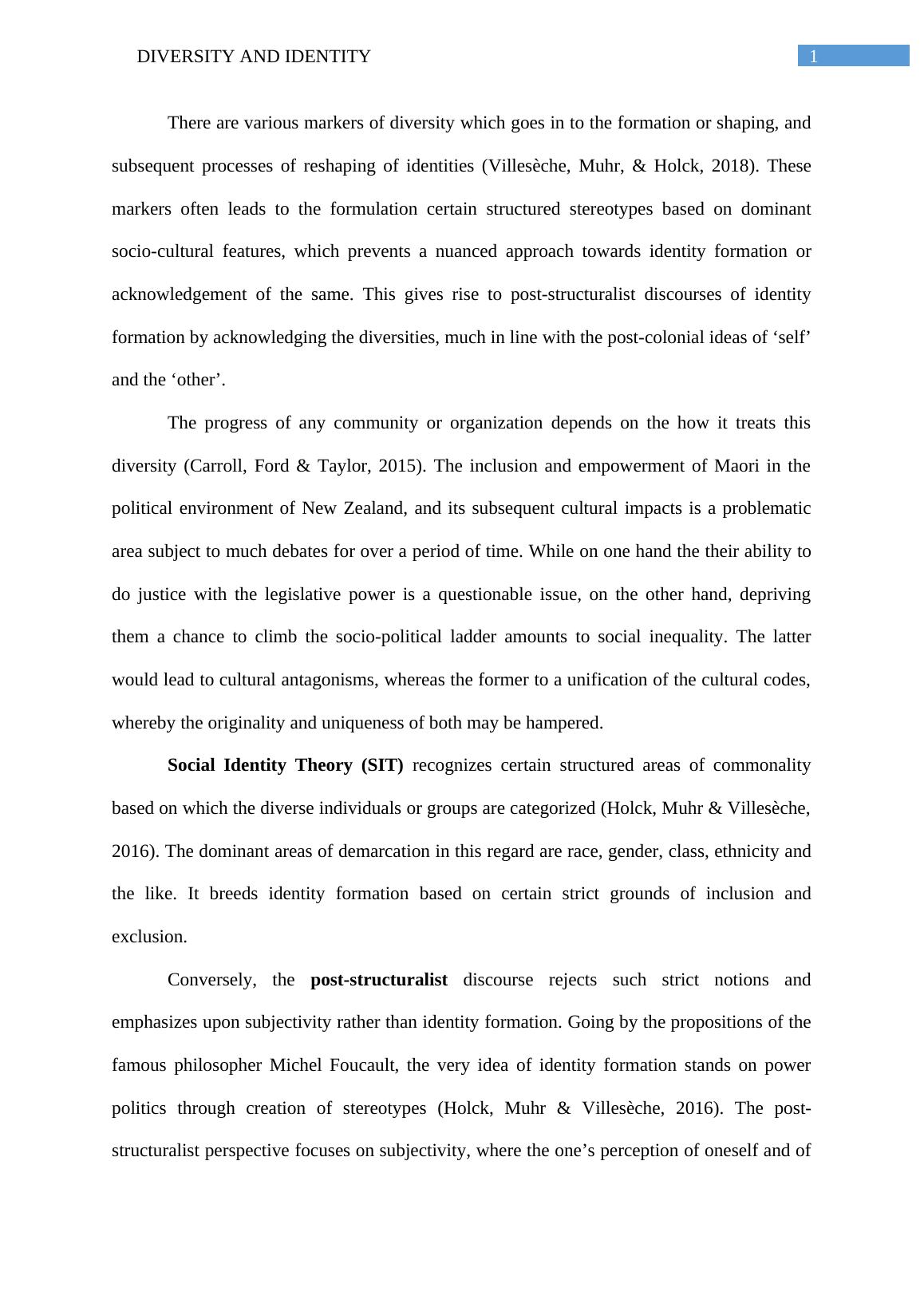Diversity and Identity in Identity Formation and Acknowledgement
Examining the relationship between identity and diversity literatures and discussing the theoretical connections between the two for diversity research and diversity management practices.
4 Pages844 Words452 Views
Added on 2023-06-03
About This Document
This article discusses the markers of diversity and identity formation, including the post-structuralist discourse and the Maori people's political representation. It explores the balance between fixed and conventional ethos and the deferring nature of identity formation.
Diversity and Identity in Identity Formation and Acknowledgement
Examining the relationship between identity and diversity literatures and discussing the theoretical connections between the two for diversity research and diversity management practices.
Added on 2023-06-03
ShareRelated Documents
End of preview
Want to access all the pages? Upload your documents or become a member.


